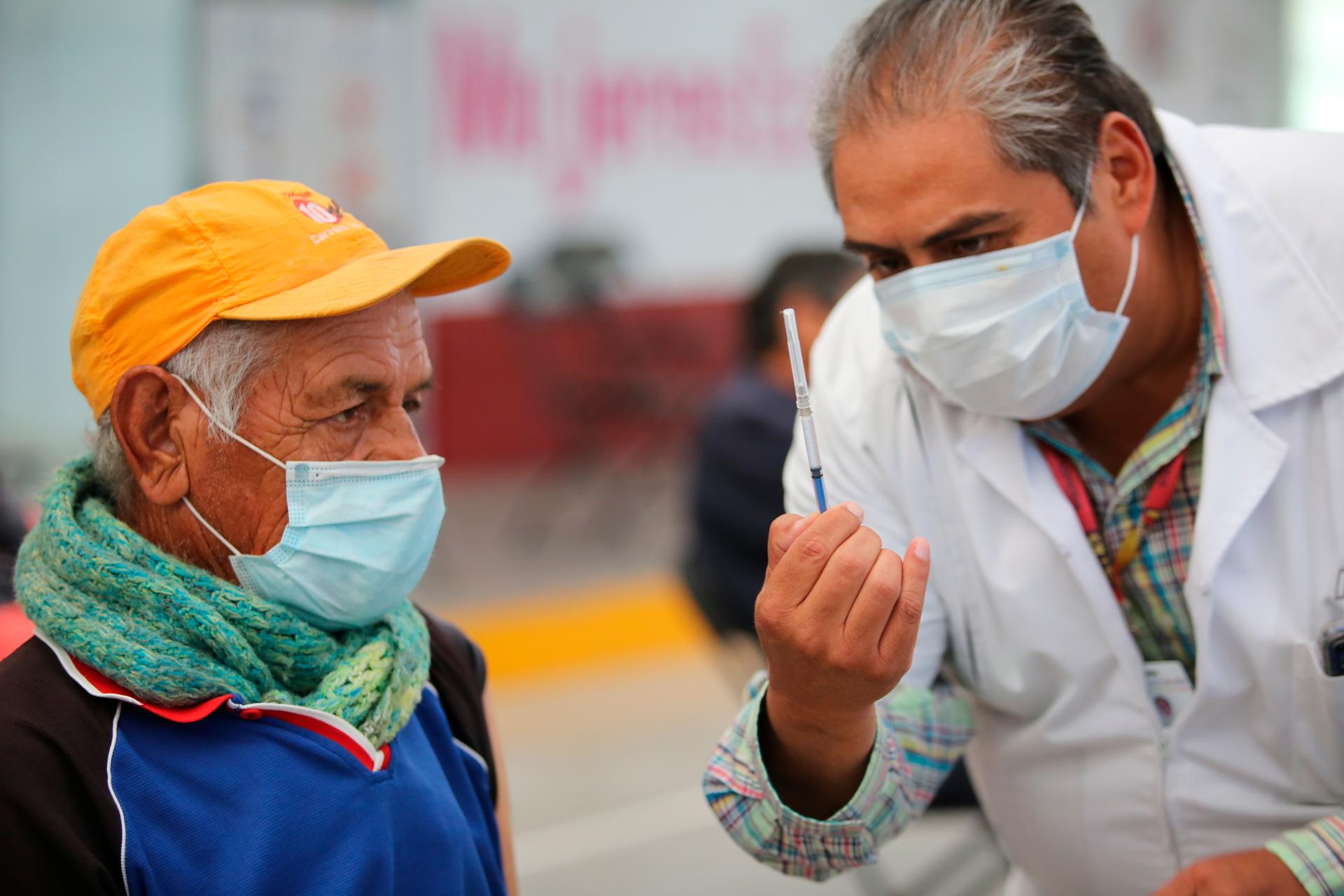Dr. Maria José Diaz thought she’d be among the first to get a shot.
Diaz, a family physician with a private practice in Mexico City, had been treating patients who tested positive for COVID-19 for months when the Mexican government gave the country’s first vaccine against the coronavirus to a nurse in late 2020.
So, as she and her secretary strapped on N95 masks and goggles for work every day, Diaz figured they would soon be called on to be inoculated against the virus. Almost five months later, the call still hasn’t come.
Related: Honduras and other countries at the ‘back of the line’ in global vaccine distribution
As governments the world over race to vaccinate their populations — prioritizing medical workers — thousands of doctors, nurses and other personnel working in Mexico’s private health care sector say they’re being passed over.
“I’m no longer sad. I’m angry.”
“I’m no longer sad. I’m angry,” Diaz said.
Earlier this month, hundreds of private practice physicians crowded near the entrance of the naval academy in Mexico City, demanding to get a dose of the vaccines stored inside. Most were turned away, because the country’s vaccine schedule prioritized health care workers in the public sector.
Related: Russia expands ‘soft power’ in Latin America with Sputnik vaccine
In mid-April, Hugo López-Gatell, known as the country’s coronavirus czar, said the health care workers who needed to be protected were being protected.
The Mexican government designated public hospitals as the official COVID-19 treatment facilities since early in the pandemic, but private health care providers have also become important front-line workers, said Dr. Malaquías López-Cervantes, a former federal health official and a public health professor at the National Autonomous University of Mexico.
Mexican political leaders are disregarding recommendations from the World Health Organization and their own scientists, López-Cervantes said.
“What we have in Mexico is not a plan for vaccination, but just a collection of ideas that come out of political convenience. It’s pretty disorganized.”
“What we have in Mexico is not a plan for vaccination, but just a collection of ideas that come out of political convenience,” López-Cervantes said. “It’s pretty disorganized.”
In response, a group of private-sector physicians began a list in March of medical workers waiting for a vaccine. By mid-April, they’d collected more than 31,000 names, said Dr. David Berrones, an ophthalmologist in San Luis Potosí.
There is no central registry of private-sector medical workers, but Berrones said he believes the list he has helped compile represents only a small fraction. In some cases, doctors are traveling to the United States, where anyone over the age of 16 can now get a dose, he said.
Related: Mexico’s COVID-19 wards are full. Many patients who can’t get oxygen die at home.
“Even that’s unfair, because not everyone can afford to travel,” Berrones said.
Diaz and her office assistant in Mexico City can’t, either. They’re both younger than 40, which, under the country’s sluggish rollout, means they likely won’t receive a dose until the end of the year — at the earliest.
Diaz said she believes the government skipped over them for political reasons. Mexico will hold congressional elections this June, and many doctors say they believe President Andrés Manuel López Obrador wants to make a show out of beginning vaccinations for the next priority group — the elderly.
Diaz, and many other private medical workers, have taken part in civil disobedience by shutting down streets. Diaz said she will continue to stage protests until the government gives them the protection they need to do their job.
“I’ve been closing streets with many of my colleagues so people realize that this problem exists,” she said.
